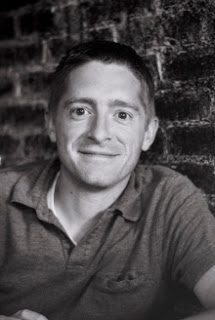Moral Minority: Interview with David Swartz on the Evangelical Left (Part II)
Brantley Gasaway
Here is the second installment of my two-part interview with David Swartz, author of the newly released Moral Minority: The Evangelical Left in an Age of Conservatism (University of Pennsylvania Press). For part I, click here.
Brantley Gasaway (BG): One of the most pressing questions concerning the evangelical left is, of course, why they became marginalized and overshadowed by the Religious Right. Among the several contributing factors that you suggest—fracture caused by identity politics, skepticism from the political left, and the right's strategic focus abortion—does any one stand out as most important?
David Swartz
(DS): Abortion played an important role in both pushing evangelicals away from
the Democratic Party and pulling them into the Republican Party. Prior to the
1970s the Democrats were arguably more pro-life and pro-family than the
Republicans. But activists enforced a pro-choice orthodoxy on the Democratic
Party in the 1970s. At the same time, Republicans enticed a newly energized
religious right with a pro-life orthodoxy. Consistent life evangelicals and
Catholics were left without a political home. Many pro-life Democrats—like John
Kerry, Dennis Kucinich, Mario Cuomo, Bob Kerrey, Bill Clinton, Jesse Jackson,
Joe Biden, Paul Simon, and Al Gore—flipped to a pro-choice position. Those not
willing to flip, including very many potential progressive evangelicals, found refuge
in the GOP.
BG: Despite
progressive evangelicals being "left behind" by the Religious Right
and political left, your story is not just one of failure. What are the most important ways that
the evangelical left was successful?
DS: Two
progressive evangelicals—President Jimmy Carter and Oregon Senator Mark
Hatfield—occupied the highest political offices in the nation. And according to
one Latin American specialist, Witness for Peace and Pledge of Resistance, two
anti-Contra campaigns birthed by progressive evangelicals, helped prevent a
U.S. invasion of Nicaragua.
More important
than these newsworthy persons and events, however, was the influence that
progressive evangelicals had on evangelical culture. Having labored for decades
with little help on issues of poverty, women’s rights, and inequities in the
global economy, Ron Sider’s concerns became more mainstream among evangelicals
associated with megachurch pastor Bill Hybels, editors at Christianity Today, and the many evangelicals who have never closely
identified with Jerry Falwell, Pat Robertson, and other religious right leaders.
Sider’s Rich Christians in an Age of
Hunger, for example, while not profoundly influencing American economic or
foreign policy, guided the giving and consumptive patterns of millions of
evangelicals. And many more evangelicals, including politically conservative
evangelicals, now speak more explicitly in the language of social justice.
After attending the 1989 missionary convention Lausanne II in Manila,
Philippines, Sider declared, “What especially impressed—and delighted—me was
the extent to which the ESA vision of holistic concern for both evangelism and
social action has now become the prevailing perspective of mainstream
evangelicalism worldwide. That was not the case when ESA was launched with the
Chicago Declaration in 1973!” This was not explicit politicking. But electoral
work, as John Howard Yoder argued, is not the only way to pursue a “politics of
Jesus.”
BG: Your
narrative ends in the late 1980s, but you note in your epilogue—and continue to
document on your own blog—ongoing activism and even signs of the growing appeal
of progressive evangelicalism. If
pushed to offer an analysis that many historians are understandably reluctant
to make, how would you assess the future of the evangelical left in America?
DS: I’m not
terribly well informed on the contemporary evangelical left. In fact, as I
wrote the manuscript, I intentionally avoided reading Sojourners and other progressive evangelical publications. I wanted
to avoid teleology and preserve a sense of contingency in the narrative. That
said, there does seem to be a flowering of progressive urban activism,
communitarianism, and global justice issues. More evangelicals seem to be
questioning whether small government, lower taxes, and a strong national
defense comfortably square with New Testament directives about blessing
peacemakers, caring for the poor, and turning the other cheek. At the same time,
many evangelicals are also finding it difficult to ally with secular liberals
who insist on a party platform that includes reproductive rights and the
redefinition of marriage and family. The many ways evangelicals read the Bible
do not fit comfortably within the American electoral system. And so
I—daringly!—forecast continued evangelical incoherence. The evangelical left
will persist—and so will a substantial religious right. Given the decentralized
nature of the movement, I expect that conditions outside the movement,
especially the ideological platforms and cultural sensibilities of political
parties, will significantly shape the direction of evangelical politics.
BG: What is your
next project?
DS: I’m working
on a project that extends my findings on Samuel Escobar, the Latin American
Theological Fraternity, and the “global reflex.” In my research I found
abundant evidence in the work of InterVarsity, International Fellowship of
Evangelical Students, the 1974 Lausanne Conference, and World Vision of global
evangelicals speaking back to and shaping the politics, theology, and culture
of American evangelicals. So I want to tell the story of how global experiences
moved American evangelicals from a narrowly focused anticommunism at midcentury
toward a new and broader internationalism at the end of the twentieth century.


Comments
Fascinating, this. Lord knows we're lousy with teleologists; what we need are more historians.
Thanks for the interviews, Brantley. Great questions, great answers.